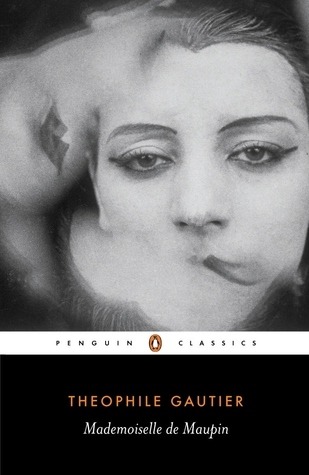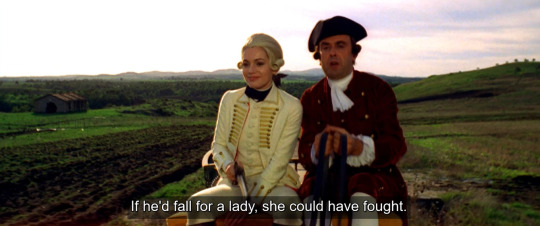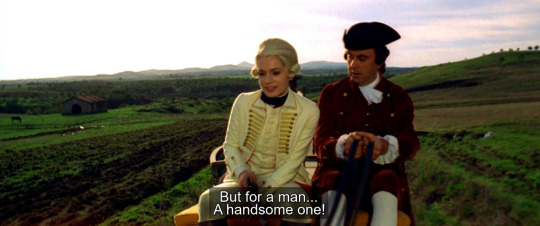#mademoiselle maupin
Explore tagged Tumblr posts
Text

Julie d’Aubigny, one of the coolest historical figures of all time!
🤺🎶🏳️🌈
#history#julie d’aubigny#opera singer#bisexual#sword fighter#womens history#mademoiselle maupin#france#historical figures#girl power#lgbt history#bisexual icons#1600s#wlw#historical women#lgbtq#french history#coquette#bisexual girls#cross dressing#coquette girl#grl pwr#singer#women supporting women#lgbt#women empowerment#bisexual pride#nickys facts
9 notes
·
View notes
Text
Who was Maupin?

Julie d'Aubigny, more often known by her stage name "Mademoiselle Maupin," was a queer and gender-non-confirming opera singer who lived at the end of the 17th century into the beginning of the 18th century (1670-1707). She was a mezzo-soprano, and sang some of the first leading roles written specifically for the mezzo voice at the Paris Opera. She was also highly skilled in swordplay, and defeated many men in duels throughout her life. Besides the dates of her performances at the Opéra, there's very little else we know for sure about Maupin's life - although there are many sensational stories, which may or may not be true...
#Maupin#Opera#La Maupin#La Maupin Film#Film#Mademoiselle Maupin#Julie Daubigny#History#17th century#18th century#Opera Singer#Queer#Bisexual#Gender Nonconforming
2 notes
·
View notes
Text
Strong women of history!
Julie d'Aubigny (French 1673–1707), better known as Mademoiselle Maupin or La Maupin, was a French opera singer. Little is known for certain about her life; her tumultuous career and flamboyant lifestyle were the subject of gossip, rumour, and colourful stories in her own time, and inspired numerous fictional and semi-fictional portrayals afterwards.
https://en.m.wikipedia.org/wiki/Julie_d%27Aubigny

Annie Oakley (1860 - 1926) was a sharpshooter and folk heroine of the American West who starred in Buffalo Bill's Wild West. She is remembered as the legendary frontwoman for Buffalo Bill's Wild West Show, and an advocate for women to learn a sport that was primarily dominated by men.

Another baddie! Amelia Mary Earhart was an American aviation pioneer who disappeared in 1937 while trying to become the first female pilot to fly around the world. She was a record-setting solo pilot across the Atlantic and is known for her many flying records and advocacy for women in aviation. Her awards include the American Distinguished Flying Cross and the Cross of the French Legion of Honor.
She is another in a series of bad ass women of history. Who should I do next?

#girl power#beautiful women#strong women#girl boss fr#girl bosses#women’s rights#amelia earhart#annie oakley#Mademoiselle Maupin#lgbtq#lgbt pride#lgbtq positivity#digital drawing#digital painting#digital art#digital illustration#artists on tumblr#artist of tumblr
1 note
·
View note
Text
The world does not want me; it rejects me like a ghost escaped from the tombs; I am almost as pale: my blood refuses to believe that I am alive, and it will not colour my skin; it drags itself slowly through my veins, like stagnant water in choked-up canals.
Mademoiselle de Maupin, Théophile Gautier, 1835
249 notes
·
View notes
Text


















Mademoiselle de Maupin (1966)
21 notes
·
View notes
Text

"You would be reduced to beggary to-morrow, if the world should become virtuous to-day. The theatres would be closed to-night.—What would you take for the subject of your feuilleton?—No more Opéra balls to fill your columns,—no more novels to dissect; for balls, novels, plays, are the real pomps of Satan, if we are to believe our holy Mother Church.—The actress would dismiss her protector and could no longer pay you for puffing her.—Nobody would subscribe to your newspapers; people would read Saint Augustine, they would go to church, they would tell their beads. That would be very praiseworthy, perhaps, but you would gain nothing by it. If people were virtuous, what would you do with your articles on the immorality of the age? You see plainly that vice is good for something."
- Théophile Gautier, Mademoiselle de Maupin
Art by Fabian Perez
#literature#quote#reading#writing#book#novel#author#writer#books#french literature#theophile gautier#mademoiselle de maupin#art#artist#painting#fabian perez#vice#journalism#satan#church#religion#prayer#virtue
8 notes
·
View notes
Text

Mademoiselle de Maupin
Théophile Gautier
classic French novel published in 1835, this book follows our protagonist d'Albert as he tries to find the woman of his dreams, and instead falls in love with a man. This man, Theodore, is secretly a woman crossdressing as a man.
The age of this book needs to be considered when reading, as the ideals of the time have become outdated, and they did not have the language that we have now surrounding queer topics. Obviously it's not good rep to this days standards, but for the time it was boundary pushing for being an outwardly gay book. Unsurprisingly, translations of this novel were banned and illegal in England when it was published.
A lot of the queerness of the characters are left unlabelled and open to interpretation; it's not clearly said that Theodore is a trans man, a cis woman, or any other identity - they are simply either a man or a woman, depending on the scene. Theodore goes by both he/him and she/her pronouns, sometimes within the same sentence, for simplicity I will use they/them.
Similarly, d'Albert spends some pages lamenting on wishing he were born a woman. While this is never explored in the text, it was I interesting to read about.
The story is simple:
d'Albert is dating a woman, Rosette, but is not happy in his relationship as she does not meet his standards for an ideal woman.
Rosette is in love with Theodore, but has settled with d'Albert as a rebound of sorts.
And finally, Theodore ran away from their family to live as a man, wooed Rosette, realised they couldn't take the relationship further because they would betray their lack of pebis, and then ran away from Rosette.
The story climaxes when they all stay together at a chateaux, d'Albert realises Theodore matches his ideal standards, and has to grapple with loving a man. Rosette pines for Theodore, who still can't shag due to lack of weeny. Theodore then reveals himself as a woman, shags d'Albert, (heavily heavily implied) shags Rosette, then once again runs away from it all.
I did not expect this book to be so queer, discussing trans and gay thoughts, and having a bisexual protagonist who admits to preferring women over men.
For a short story it sure is wordy, with paragraphs just describing scenery and locations. It's all flowery and descriptive language, very poetic, but it was a bit much for me (especially when reading before bed when the descriptions sent me to sleep)
also. gautier had a thing for feet.
Good book, I'd recommend to anyone who like classic literature and queer stories.
I rate it 3 👣 out of 5
6 notes
·
View notes
Text
rip jason todd you would've loved 19th and 18th century french literature and poetry
#like genuinely jason would love baudelaires poetry#he would be such a mademoiselle de maupin lover#the queer undertones (overtones)#he would loveeee it#as per usual im spreading my bisexual jason agenda#dc#batman#batfam#jason todd
12 notes
·
View notes
Text
De l'origine des tartines
Je suis en train de lire Mademoiselle de Maupin et il s'agit d'un roman épistolaire. Dans une lettre, le narrateur s'excuse à son ami de lui écrire.... une tartine (!!!) et j'étais si surprise de trouver ce mot dans un livre publié en 1835. Je viens donc de vérifier dans le Dictionnaire Historique de la langue française et le mot tartine dans son sens métonymique est attesté en.... 1823 !
Je trouve toujours ça amusant de rencontrer dans un livre un mot que je pensais beaucoup plus tardif. Maintenant je me demande si le lectorat du roman en 1835 s'est amusé de voir Théophile Gautier utiliser un vocabulaire si contemporain :)
#ps scribit#mademoiselle de maupin#étymologie#mes lectures#jusqu'ici ça me plaît beaucoup !#j'appréciais déjà le mot tartine mais cette découverte me le rend encore plus sympathique#si je faisais une liste de mes expressions préférées je pense que 'écrire une tartine' mériterait une place
1 note
·
View note
Text
There is something grand and beautiful about loving a statue; the love is perfectly disinterested, there is no fear of satiety nor conqueror's disgust, and you cannot reasonably hope for the miracle that happened to Pygmalion.
— Théophile Gautier, Mademoiselle de Maupin (1836) London: Folio Society p. 87.
#théophile gautier#gautier#pygmalion#statue#marble sculpture#sculpture#art#literature#Mademoiselle de Maupin#French literature#quote#love#the winter’s tale#shakespeare#Jill#philip larkin#my fair lady
13 notes
·
View notes
Text
There are so many books on my nightstand that I want to read but also so many books I want to reread. Life is nothing but a struggle
#personal#the books are the count of montecristo. mademoiselle de maupin. crime and punishment#and that's without counting all the papers I want to read#and it's not like I'm not enjoying the two books I'm currently reading
5 notes
·
View notes
Text

1 note
·
View note
Text

Mademoiselle de Maupin est un roman épistolaire, captivant et inoubliable de Théophile Gautier.
0 notes
Text
This is perhaps because I live very much alone, and, in a life as monotonous as mine, the smallest details assume too much importance. I fuss too much about living and thinking; I hear the beating of my arteries, the pulsations of my heart; I pay such attention to my most imperceptible ideas that I take them out of the cloudy mist in which they were floating, and I give them body. If I were more active, I shouldn't notice all these little things, and I shouldn't have time to examine my soul under a microscope, as I do all day.
Mademoiselle de Maupin, Théophile Gautier, 1835
36 notes
·
View notes
Text




what is truly most joyful about this film is scenes like this. the constant gay teasing throughout the plot towards robert hossein's character hits at exactly where it should bc the source of the joke isn't the spectre of homosexuality itself but how much of a ridiculous terror he experiences each time. there are a few things to be said about this character, but it all comes down to his patriotic military persona he is trying to insist on desperately, being as much of a facade and hollow performance as his masculinity itself. it is such an absurd, hysterical dynamic when catherine spaak and tomas milian's characters spot this insecurity and annoy him about it just for the sake of it. bc spaak, to his knowledge, is supposed to be man but is really a woman all along (or is she), so when there is some sort of attraction building between them, she notices this and goes out of her way to create situations where he would have to address his attraction to her, believing himself to be gay since she is a boy, of course. these little scenes leave him so humiliated, and her, in control and amused at the situation, not bc how could he be so stupid he doesn't realize ~the truth (?), -since in this narrative we have to suspend our disbelief anyway and accept that catherine spaak is made to look in any way boyish in her appearance- but he is ridiculous bc he insists so much on a set way of seeing the world. bc her and milian's characters exist completely outside of this norm he is representing and they are the ones ridiculing *him* for clinging so much to it, it's like he's in the minority in the film's narrative. it is to be noted that when the final reveal happens and catherine spaak wears a dress instead of a uniform and tells him of being a woman and being in love w him as well, robert hossein keeps calling her as her 'boy name', theodore, even after their final kiss. it's not the person who has changed, from "man to woman" but only a dress was put on. there is also the fact to be noted here is that catherine spaak never once says, 'i will use this boy name as an alias bc circumstances demand it' she says, 'i am now theodore and i wish to be called that and be a man from now on'. it is completely insane.


^while on the note of clown behaviour and gay jokes, the tomas milian's subplot is practically that he also falls in love w catherine spaak (only bc she wears men's clothing which is so so funny and there really should be a fucking dissertation about clothes as a symbol in this film bc it is relatively so simple and yet says it all) and she does reveal to him that she is technically a woman which does not change his feelings (they said here's how bisexuality can still win) but when other, unaware characters question why he is in love w another man he simply does not correct them. why? because he is insane and also bc just as catherine spaak does w robert hossein, he literally just enjoys shocking ppl with the concept of homosexuality. and this is how you make a fun gay film.
15 notes
·
View notes